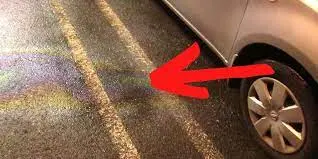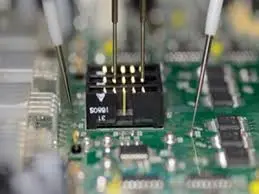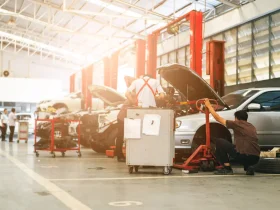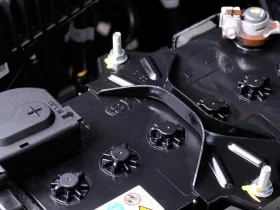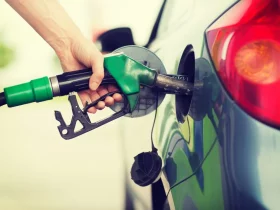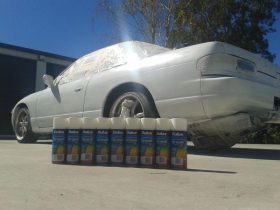If you own a Jeep and notice oil spots on your driveway or garage floor, you may be wondering, “Why is my Jeep leaking oil?” Oil leaks can be a common issue for vehicle owners, and it’s important to address them promptly to prevent further damage.
The potential causes of oil leaks
The potential causes of oil leaks is essential to finding the right solution for your Jeep. There are several reasons why your Jeep may be leaking oil. One common cause is a faulty gasket or seal.
Another possibility is that your Jeep’s oil filter may be loose or improperly installed. A loose oil filter can lead to oil leakage, so it’s crucial to ensure that the filter is securely tightened during oil changes.
Excessive oil pressure or an overfilled oil reservoir can also cause oil leaks. If the oil level is too high, it can put additional strain on the gaskets, seals, and other engine components, resulting in leaks.
Identifying common signs of an oil leak
By being aware of these signs, you can address the issue promptly and prevent any further damage to your vehicle.
One of the most obvious signs of an oil leak is the presence of oil spots or puddles underneath your Jeep. If you notice any dark stains on your driveway or in your parking spot, it is likely that your Jeep is leaking oil.
Another sign to look out for is the smell of burnt oil. If you notice a strong odor of burning oil while driving or when your Jeep is parked, it may indicate an oil leak.
The dangers of ignoring an oil leak
Ignoring an oil leak in your Jeep can lead to serious consequences. While it may seem like a small issue, the long-term effects can be detrimental to your vehicle’s performance and safety.
One of the dangers of neglecting an oil leak is the potential damage to your engine. Oil is essential for lubricating the moving parts of your engine and preventing friction.
This not only hurts your wallet at the gas pump but also contributes to unnecessary carbon emissions, harming the environment.
Furthermore, an oil leak can create a hazardous driving condition. If oil drips onto the hot exhaust system, it can ignite and cause a fire. This can be especially dangerous if you are driving at high speeds or in congested traffic.
Steps to diagnose and fix the oil leak
Now that you understand the importance of addressing an oil leak in your Jeep, let’s discuss the steps you can take to diagnose and fix the issue. By following these steps, you can ensure the proper functioning of your vehicle and avoid any further damage.
Visual Inspection
Start by inspecting the underside of your Jeep for any visible oil leaks. Look for puddles or streaks of oil on the ground, as well as any wet or oily areas around the engine, transmission, or differential. Keep in mind that oil leaks can occur from various components, such as the oil pan, valve covers, gaskets, or seals.
Check the Oil Level
Verify the oil level on your dipstick. If it is significantly low, it indicates a possible oil leak. Additionally, pay attention to the consistency and color of the oil. If it appears dark and gritty, it may be time for an oil change.
Perform a UV Dye Test
To pinpoint the exact source of the oil leak, you can perform a UV dye test. Add UV dye to your engine oil and run the engine for a short period. Afterward, use a UV light to detect any fluorescent traces of the dye, which will indicate the location of the leak.
Inspect and Replace Gaskets or Seals
Most oil leaks are caused by faulty gaskets or seals. Inspect these components for any signs of damage, wear, or deterioration. If necessary, replace them with high-quality replacements to ensure a proper seal.
Monitor for Residual Leaks
After addressing the main cause of the oil leak, monitor your Jeep closely for any residual leaks. Sometimes, there may be multiple sources of leakage that need to be fixed individually.
Preventative measures
Now that you’ve successfully diagnosed and fixed the oil leak in your Jeep, it’s important to take some preventative measures to avoid future leaks. By following these maintenance tips, you can keep your Jeep in top condition and minimize the risk of experiencing another oil leak.
1. Regularly Check and Change the Oil:
Make it a habit to check your oil level regularly using the dipstick. If the oil level is low, add oil as needed. Additionally, change the oil and oil filter at the recommended intervals, as stated in your Jeep’s owner’s manual.
2. Use the Right Type of Oil:
Ensure that you are using the correct type and viscosity of oil for your specific Jeep model. Using the wrong oil can cause leaks and other engine problems.
3. Inspect and Replace Seals and Gaskets:
Keep an eye out for any signs of wear or damage to the seals and gaskets in your engine. If you notice any issues, have them replaced promptly to prevent leaks.
4. Avoid Overfilling the Oil:
Overfilling the oil can lead to excess pressure and cause leaks. Always follow the manufacturer’s recommended oil capacity when adding oil.
5. Clean the Engine Regularly:
Regularly clean your engine to remove dirt, debris, and grime that can contribute to oil leaks. Use a degreaser and a hose to gently clean the engine, being careful not to get water near electrical components.
Conclusion
Taking proactive measures to prevent oil leaks in your Jeep is essential for maintaining the longevity of your vehicle. Regularly checking and changing the oil, using the correct type of oil, inspecting and replacing seals and gaskets, avoiding overfilling the oil.
Your Jeep remains in top condition and minimize the risk of future oil leaks. Remember, regular maintenance is key to keeping your vehicle running smoothly and avoiding costly repairs down the line.

